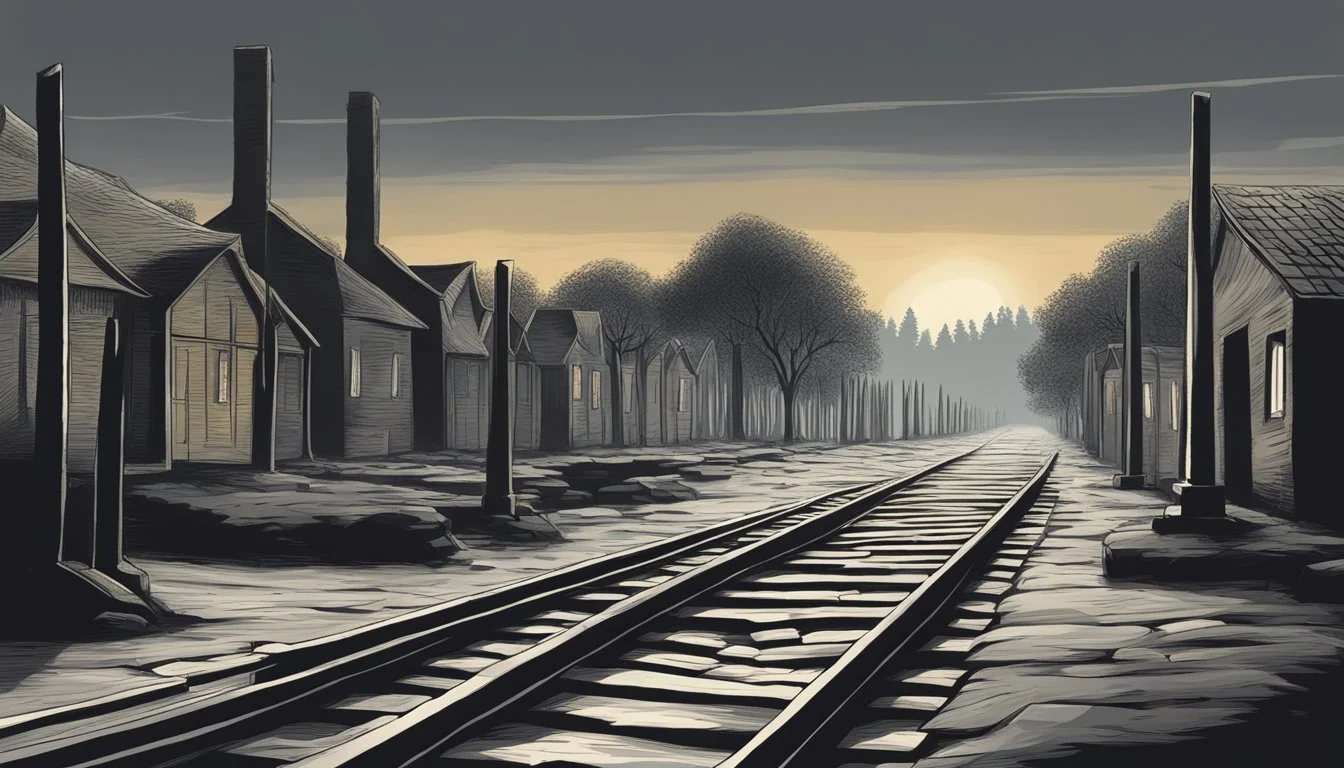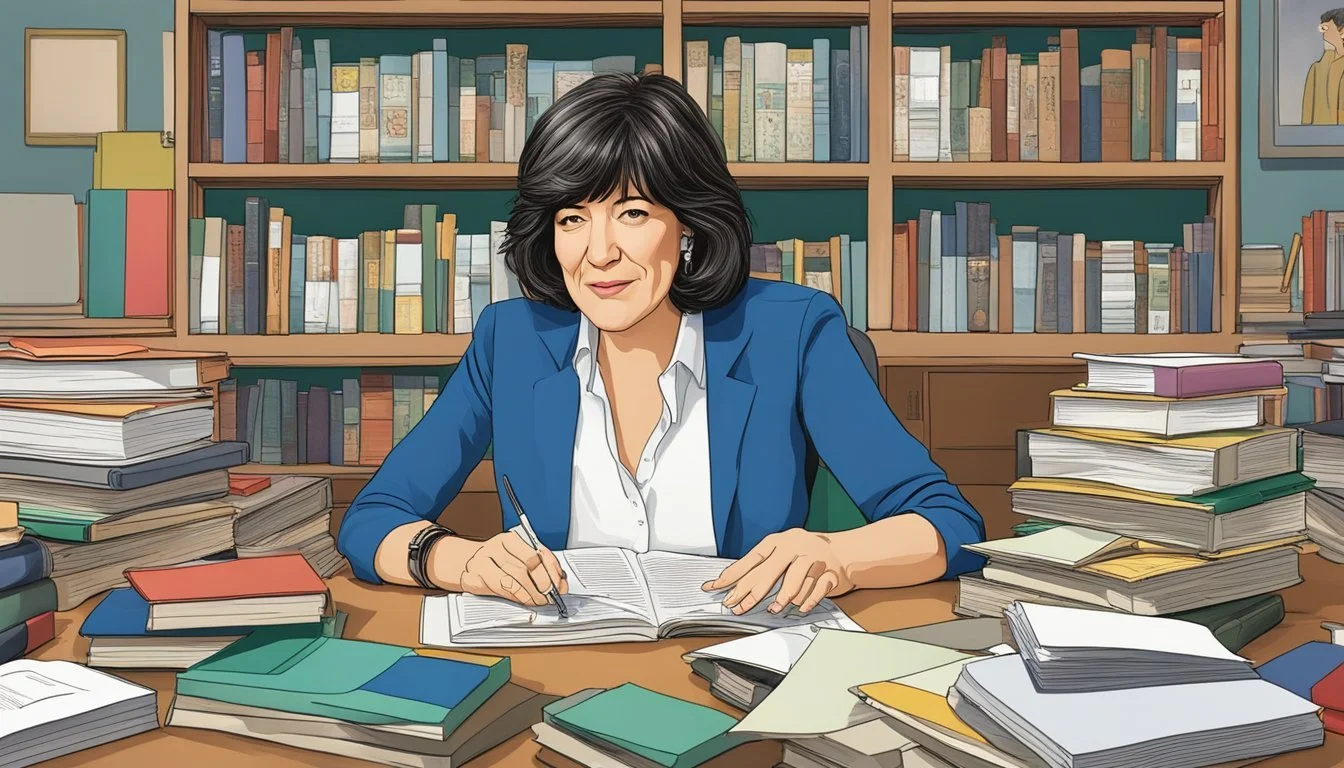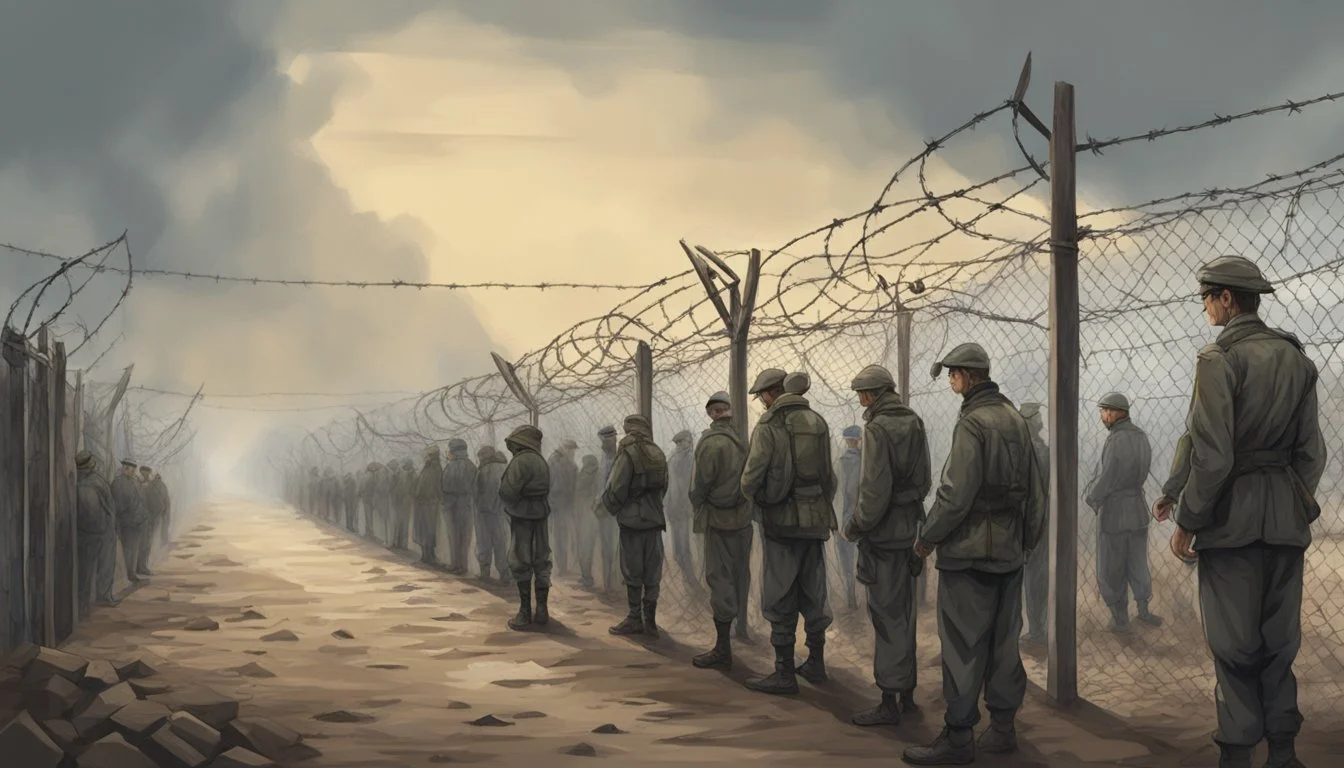Christiane Amanpour: When a Holocaust Comparison Went Too Far
CNN Anchor's Controversial Remarks Spark Debate
Christiane Amanpour, CNN's chief international anchor, sparked controversy in November 2020 with her remarks comparing the Trump administration to Kristallnacht. The veteran journalist drew parallels between the Nazi pogrom and perceived threats to democracy in the United States.
Amanpour's comments ignited a firestorm of criticism, leading to calls for an apology from Israeli officials and Jewish organizations. Many viewed her analogy as an inappropriate use of Holocaust memory and a trivialization of the genocide's horrors.
In response to the backlash, Amanpour expressed regret for her choice of words. She acknowledged the unique nature of the Holocaust and its impact on the Jewish people. This incident highlights the sensitivities surrounding Holocaust comparisons and the responsibilities of journalists when discussing historical events.
Christiane Amanpour's Profile
Christiane Amanpour is a renowned British-Iranian journalist and television host. She has established herself as a prominent figure in international news reporting and anchoring.
Career Highlights
Amanpour joined CNN in 1983 as an entry-level assistant on the international assignment desk. She quickly rose through the ranks, becoming a reporter and then a foreign correspondent. Her coverage of the Gulf War in 1991 catapulted her to prominence.
Throughout her career, Amanpour has reported on major global conflicts and crises. She covered the Bosnian War, the Rwandan Genocide, and the Arab Spring. Her fearless reporting from war zones earned her numerous awards and accolades.
In 2009, Amanpour briefly left CNN to host ABC's "This Week." She returned to CNN in 2012, taking on a more significant role.
Role as an International Anchor
As Chief International Anchor for CNN, Amanpour hosts the nightly interview program "Amanpour" on CNN International. The show features in-depth conversations with global leaders, thinkers, and influencers.
Amanpour's interviewing style is known for being direct and incisive. She has conducted high-profile interviews with world leaders such as Moammar Gadhafi, Hosni Mubarak, and Hassan Rouhani.
Her role extends beyond anchoring. Amanpour frequently provides analysis on major international events for CNN's global audience. Her expertise and perspective are highly valued in navigating complex global issues.
The Power of Comparison in Historical Context
Historical comparisons can be powerful rhetorical tools, but they require careful consideration and accuracy. When used responsibly, they can illuminate important truths and provide valuable context for current events.
Using the Holocaust in Rhetoric
The Holocaust holds a unique place in human history due to its scale and systematic nature. Its gravity makes it a potent reference point in political discourse. Some public figures invoke Holocaust imagery to emphasize perceived threats or injustices.
However, this practice is controversial. Many historians and Jewish organizations caution against casual Holocaust comparisons. They argue it can trivialize the suffering of millions and distort historical understanding.
Responsible use of Holocaust references requires deep knowledge of the events and their context. It demands sensitivity to the trauma still felt by survivors and their descendants.
Consequences of Inaccurate Comparisons
Inaccurate historical comparisons can have serious repercussions. They can mislead public opinion and distort perceptions of current events. When political figures make flawed analogies to the Holocaust, it can damage their credibility.
Such comparisons may also fuel misunderstandings about historical facts. This can lead to a erosion of historical knowledge among the general public. In some cases, it may even provide fodder for Holocaust deniers or revisionists.
Media figures who make inappropriate comparisons often face backlash. This can result in public apologies or even professional consequences. The controversy surrounding Christiane Amanpour's comments illustrates these risks.
Ultimately, responsible use of historical comparisons requires careful thought, accurate information, and respect for the weight of history.
The Incident That Crossed the Line
Christiane Amanpour's controversial remarks comparing the Trump administration to Kristallnacht sparked intense backlash and led to a public apology. The incident highlighted the sensitivity surrounding Holocaust comparisons and the responsibility of media figures.
The Controversial Remarks
On November 12, 2020, CNN's Christiane Amanpour made a comparison between Kristallnacht and the Trump presidency. She likened the Nazi pogrom against Jews to Trump's attacks on "truth, knowledge, history and fact."
This analogy drew immediate criticism for its perceived trivialization of the Holocaust. Amanpour's comments were seen as an inappropriate use of historical tragedy for political commentary.
Public and Media Backlash
The reaction to Amanpour's remarks was swift and widespread. Israeli officials, including the country's ambassador to the U.S., condemned the comparison as offensive and historically inaccurate.
The Anti-Defamation League also voiced concerns, emphasizing the uniqueness of the Holocaust and the dangers of casual comparisons. Many viewers and media critics called for an apology, arguing that such analogies diminish the gravity of historical atrocities.
Facing mounting pressure, Amanpour addressed the controversy on her show. She expressed regret for the comparison and acknowledged the distinct nature of the Holocaust. This incident served as a reminder of the care needed when discussing sensitive historical events in contemporary contexts.
The Role of the Media and Accountability
Media outlets play a crucial role in shaping public discourse and upholding truth. Their responsibility extends beyond mere reporting to ensuring accuracy and promoting meaningful dialogue.
Media as the Guardian of Truth
News organizations like CNN bear a significant responsibility in safeguarding historical facts and moral truths. Journalists must approach sensitive topics, such as the Holocaust, with utmost care and precision. When media personalities make controversial statements or comparisons, it can have far-reaching consequences.
Christiane Amanpour's experience demonstrates the weight of a journalist's words. Her Holocaust comparison sparked debate about the limits of historical analogies in current events coverage. Media figures must consider the impact of their statements on diverse audiences, including diaspora communities.
The Need for Fact-Checking
Rigorous fact-checking is essential in maintaining media credibility. News outlets must verify information before broadcasting or publishing. This process helps prevent the spread of misinformation and protects against attacks on historical facts.
Fact-checking extends to guest statements and live interviews. When public figures make contentious claims, journalists should be prepared to challenge or contextualize them. This practice ensures a more informed public conversation and holds all parties accountable for their words.
Media organizations must also be open to correction when errors occur. Acknowledging mistakes and issuing prompt corrections builds trust with audiences and reinforces the commitment to truthful reporting.
Responses to Amanpour's Comment
Christiane Amanpour's Holocaust comparison sparked swift reactions from various quarters. Officials and organizations voiced strong criticism, while Amanpour herself later addressed the controversy.
Official Criticisms
Israel's Diaspora Affairs Minister Omer Yankelevitch demanded an apology from CNN. She argued that Amanpour had misused Holocaust memory for political purposes. The Jerusalem Post reported on Israel's official response, highlighting the government's firm stance against the comparison.
Several Jewish organizations also condemned Amanpour's remarks. They emphasized the importance of preserving the unique historical context of the Holocaust. Critics argued that such comparisons trivialize the severity of Nazi atrocities.
Amanpour's Apology and Reflection
Amanpour addressed the controversy on her CNN program. She expressed regret for drawing parallels between contemporary events and Kristallnacht. The journalist acknowledged the need for more careful language when discussing historical atrocities.
In her statement, Amanpour clarified her intentions. She emphasized her commitment to factual reporting and historical accuracy. The apology aimed to address concerns raised by viewers and officials.
Amanpour's reflection prompted discussions on responsible journalism. Media experts debated the challenges of reporting on sensitive historical topics. The incident highlighted the ongoing debate about appropriate use of Holocaust analogies in contemporary discourse.
Exploring the Significance of Historical Events
Historical events shape our understanding of the past and inform our present. Analyzing key moments in history provides crucial insights into human behavior, societal trends, and the consequences of ideological extremism.
The Meaning Behind Kristallnacht
Kristallnacht, or the Night of Broken Glass, occurred on November 9-10, 1938. This coordinated attack against Jews in Nazi Germany marked a pivotal escalation of antisemitic violence. Synagogues were burned, Jewish-owned businesses were destroyed, and thousands of Jews were arrested and sent to concentration camps.
The event signaled the intensification of Nazi persecution and foreshadowed the horrors of the Holocaust. Kristallnacht demonstrated the regime's willingness to use overt violence against the Jewish population.
Understanding Kristallnacht is crucial for recognizing early warning signs of state-sponsored discrimination and violence against minority groups.
Lessons from the 20th Century's Atrocities
The 20th century witnessed multiple instances of genocide and mass atrocities. These events, including the Holocaust, have left an indelible mark on human history.
Studying these atrocities reveals patterns of dehumanization, propaganda, and societal complicity that enabled such large-scale violence. The Holocaust stands as a unique event in its systematic and industrial approach to genocide.
Preserving the memory of these events is essential for preventing future atrocities. Education about historical genocides fosters empathy, critical thinking, and awareness of the dangers of unchecked hatred and discrimination.
International institutions and legal frameworks have been established in response to these events, aiming to prevent and respond to mass atrocities.
Political Rhetoric and the Exploitation of History
Politicians and public figures often draw historical comparisons to emphasize their points. This practice can be illuminating but also risks trivializing serious events or misleading audiences.
Comparisons in Political Discourse
Political rhetoric frequently invokes historical events to frame current issues. President Donald Trump's administration saw numerous comparisons to past authoritarian regimes. Critics argued these parallels highlighted threats to democratic norms and values. Supporters countered that such comparisons were exaggerated and undermined civil discourse.
Historical analogies can be powerful rhetorical tools. They provide context and evoke emotional responses. However, they also risk oversimplifying complex situations or diminishing the gravity of past atrocities.
Seeking Objectivity in Analysis
Journalists and analysts face challenges in objectively evaluating political rhetoric that exploits history. They must balance providing context with avoiding false equivalencies. This requires in-depth knowledge of both historical events and current political dynamics.
Fact-checking and consulting experts are crucial steps. Providing audiences with multiple perspectives allows for more nuanced understanding. Clear explanations of the strengths and limitations of historical comparisons help viewers form their own judgments.
Media figures must also examine their own biases. Personal values and experiences can influence interpretations of political rhetoric and its historical references.
Moving Forward: Learning from the Past
Reflecting on past mistakes can lead to positive change and growth. By examining controversial statements and their impact, journalists and public figures can enhance their communication practices.
The Duty to Remember
The Holocaust remains a pivotal moment in history that demands ongoing remembrance and education. Accurate portrayal of historical events is crucial for preserving the memory of victims and survivors. Journalists play a key role in this process by reporting facts responsibly and avoiding inappropriate comparisons.
Holocaust education initiatives help ensure future generations understand the gravity of this tragedy. Museums, memorials, and educational programs contribute to keeping the memory alive. These efforts foster empathy and promote critical thinking about prejudice and discrimination.
Fostering a Culture of Accuracy and Respect
Media organizations can implement guidelines to promote thoughtful and sensitive reporting. Fact-checking processes and editorial review help maintain high standards of journalism. Training programs for reporters can enhance understanding of historical context and cultural sensitivities.
Public figures should consider the weight of their words, especially when discussing sensitive topics. Seeking input from experts and affected communities before making statements can prevent misunderstandings. When mistakes occur, prompt and sincere apologies can help rebuild trust.
Encouraging open dialogue about challenging subjects promotes mutual understanding. Balanced reporting that presents multiple perspectives helps audiences form informed opinions. By prioritizing accuracy and respect, media professionals contribute to a more informed and empathetic society.







